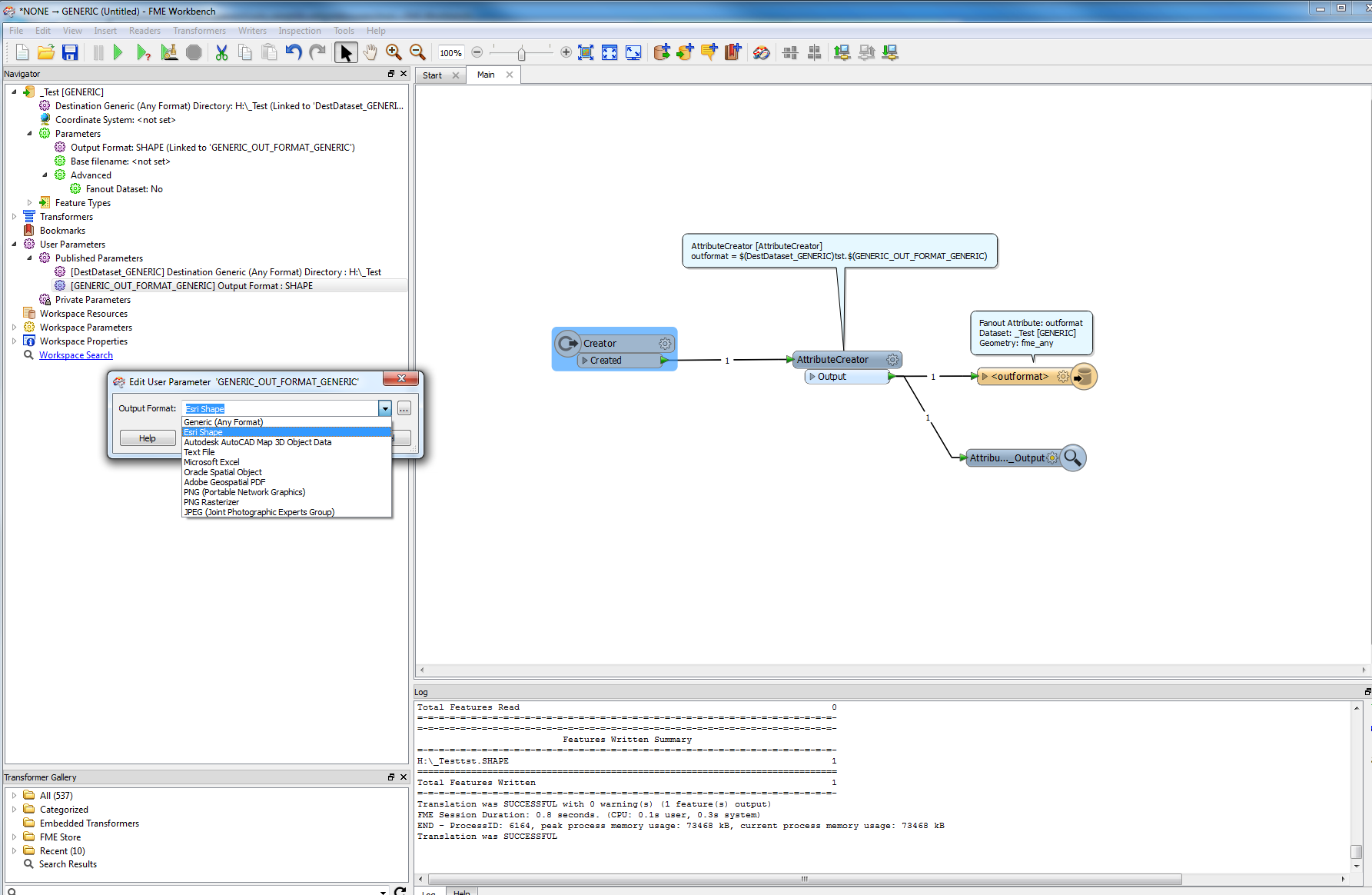Hi All,
Does anyone know how to set the FORMAT for a Generic Writer at run-time? I have a generic reader and want to output to whatever format the input data was. Is there a good way to do this?
I've tried getting the input fme_format_short_name and using that as an attribute, as well as OUT_FORMAT, OUTPUT, FORMAT, and OUTPUT_FORMAT. But all fail with the tautological:
ERROR |Generic Writer: Cannot use the Generic writer to create a Generic writer. Please select a different writer for the FORMAT keyword.
Thoughts? Thanks,
Jonathan








